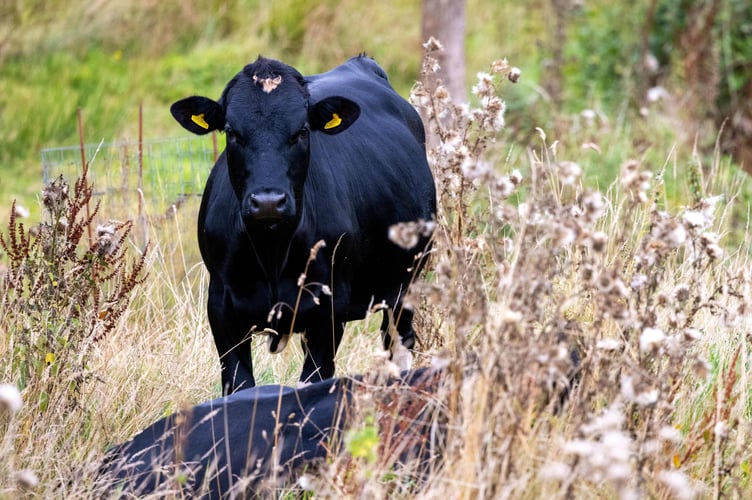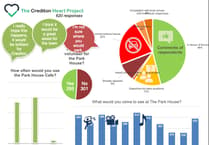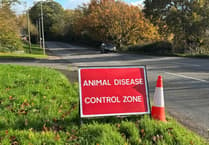AFTER transforming its farming practices, a Crediton farm has recorded the return of two red-listed bird species, according to findings from a comprehensive Lloyds Banking Group funded environmental audit.
Elston Farm, Crediton, run by 13th-generation farmer Andy Gray, is boosting wildlife habitats, improving soil health and reducing environmental impact following a shift from intensive arable cropping to regenerative farming.
The farm’s progress was audited by Soil Association Exchange, in a baseline survey which spanned nearly 240,000 hectares across 685 farms in the UK.

The largest assessment of its kind, the survey has supported Elston Farm’s sustainability efforts, connecting Mr Gray with additional funding and providing a pathway to further environmental improvements.
“The Soil Association Exchange baselining audit was really helpful – it pointed me towards environmental schemes I hadn’t come across before,” says Mr Gray.
“It opened my eyes to wider possibilities and got me thinking about some really practical ways I could make the most of the Sustainable Farming Incentive – including a few actions I wouldn’t have thought of myself.”
As part of its biodiversity efforts, Elston Farm has maintained 12,000 meters of hedgerows and created wildflower blocks that help to restore habitats and encourage wildlife.
These initiatives have contributed to a rich and varied ecosystem on the farm, with a major achievement being the return of red-listed skylarks and house sparrows amongst the 18 species of birds recorded.
The farm’s biodiversity initiatives are part of a broader regenerative strategy that includes soil health improvements and carbon sequestration, with 26 acres of silvopasture and herbal leys supporting both plant and animal life while boosting soil fertility.
Despite the farm’s naturally sandy soils, which store less carbon, these changes have led to measurable increases in soil carbon, with levels rising from 1.2 per cent to 2.4 per cent over just four years.
“I am impressed by how the land has responded to the change of practice,” says Mr Gray. “Everything is functioning better, the porosity has dramatically improved, and I am regarding the future use with a different perspective.”

Lee Reeves, UK head of agriculture at Lloyds Banking Group says: “The partnership between Lloyds Banking Group and Soil Association Exchange focuses on a holistic view of farming’s ecological footprint - sustainable farming is not just about reducing environmental impact, it’s about securing the future of the UK farming and food supply chain.
“We know farmers can’t do this alone – they need consistent support, reliable data, and financial incentives to make this transition successful.”
For customers of the diversified business, Mr Gray has a butchery and a recently launched dog food company that uses offcuts of less popular meat to reduce waste. The survey results also add credibility and support supply chain transparency.
Mr Gray says: “The audit results add a layer of trust for our customers, as well as helping identify where we go next.”





Comments
This article has no comments yet. Be the first to leave a comment.